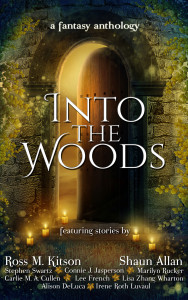 I am a vegan, but I love Bacon–Sir Francis Bacon that is.
I am a vegan, but I love Bacon–Sir Francis Bacon that is.
I love to read short stories and essays. In my opinion some of the best literature out there is available in the form of the the essay. So, let’s take a look at essays, starting with Sir Francis Bacon, renaissance author, courtier, and father of deductive reasoning. The life and works of this English essayist and statesman had a major impact in his day and still resonate in modern literature. Essayes: Religious Meditations. Places of Perswasion and Disswasion. Seene and Allowed (1597) was his first published book.
The 1999 edition of The Oxford Dictionary of Quotations includes 91 quotations from the Essays. No author gets that many quotes unless his work has struck a chord with centuries of readers.
“Knowledge itself is power.”
“Riches are a good handmaid, but the worst mistress”
Essays offer an author the opportunity to use prose to expound ideas and values. Michel de Montaigne (1533–1592) was the first author to describe his work as essays–by which he meant attempts. He used the term to characterize these short pieces as “attempts” to put his thoughts into writing. Montaigne’s essays grew out of his work that was then known as “commonplacing”: published books that were essentially scrapbooks filled with items of every kind: medical recipes, quotes, letters, poems, tables of weights and measures, proverbs, prayers, legal formulas. Think of them as mini-encyclopedias.
Aldous Huxley’s book Jesting Pilate, an Intellectual Holiday had as its epigraph, “What is Truth? said jesting Pilate; and would not stay for an answer” quoted from Bacon’s essay “Of Truth”. Huxley himself was a brilliant essayist and, according to Wikipedia, he defined essays in this way: “essays belong to a literary species whose extreme variability can be studied most effectively within a three-poled frame of reference”. These three poles (or worlds in which the essay may exist) are:
1. The personal and the autobiographical: The essayists that feel most comfortable in this pole “write fragments of reflective autobiography and look at the world through the keyhole of anecdote and description”.
2. The objective, the factual, and the concrete-particular: The essayists that write from this pole “do not speak directly of themselves, but turn their attention outward to some literary or scientific or political theme. Their art consists on setting forth, passing judgement upon, and drawing general conclusions from the relevant data”.
3. The abstract-universal: In this pole “we find those essayists who do their work in the world of high abstractions”, who are never personal and who seldom mention the particular facts of experience. (end quote)
Essays offer an author the opportunity to use prose to expound ideas and values. Michel de Montaigne (1533–1592) was the first author to describe his work as essays–by which he meant attempts. He used the term to characterize these short pieces as “attempts” to put his thoughts into writing. Montaigne’s essays grew out of his work that was then known as “commonplacing”: published books that were essentially scrapbooks filled with items of every kind: medical recipes, quotes, letters, poems, tables of weights and measures, proverbs, prayers, legal formulas. Think of them as mini-encyclopedias.
As I said, I love to read blog posts, magazine articles, short stories, and essays. Through reading short pieces you gain wide view of the world. And that is also why I write short stories. The short story offers me the chance to explore an idea that may be a strong story, but is one that doesn’t have the ‘legs’ to become a longer piece.
Anthologies offer a great variety of creative works by many authors. I a;ways find at least one story to love, and usually I am intrigued by the entire book.
Essays most frequently appear in magazines, so that is where to look for awesome contemporary work by today’s best-known authors of mainstream fiction–and much of it is sitting around in waiting-rooms the world over. But why wait to go to the doctor just so you can read a magazine piece? Get thee to a magazine stand, and rediscover the joys of short fiction and philosophical pieces.
__________________________________________________________________________
Connie J. Jasperson is the author of the Tower of Bones series, and Huw the Bard. She is a regular contributor to Edgewise Words Inn, and her work has been been published in numerous anthologies and online magazines.
